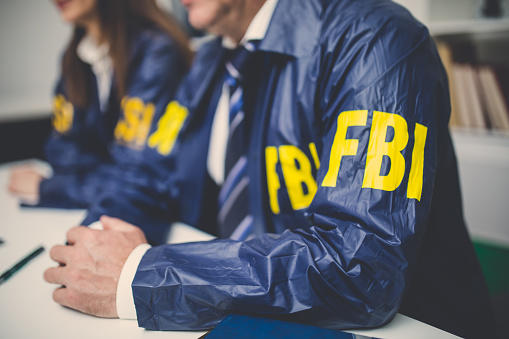The ACLU and the Center for Media Justice are suing the FBI for records related to a controversial 2017 report that cited a rise in Black extremism following police-involved shooting deaths of African Americans.
The report, titled “Black Identity Extremists Likely Motivated To Target Law Enforcement Officers” claims that law enforcement officials were being targeted as protests against police violence erupted around the country.
In 2014, the ACLU submitted a public records request asking for all documentation since 2014 that used the phrases “black nationalist,” ”black identity extremist,” and “black separatist,” according to the Associated Press.
The lawsuit is happening because the FBI is withholding these documents and in some cases, refusing to search entire categories, according to the ACLU.
“The FBI’s baseless claims about the fictitious group of ‘Black Identity Extremists’ throws open the door to racial profiling of Black people and Black-led organizations who are using their voices to demand racial justice” Nusrat Choudhury, deputy director of the ACLU’s Racial Justice Program, said in a statement.
Surveillance of Black people is nothing new and foundational to the United States. As times change, though, surveillance has shifted from its early roots –like the slave pass — to tactics like the ones the ACLU is fighting back against.
Online monitoring seems to play a key role in the identification of supposed-‘Black Identity Extremists.’ Within the document, the FBI noted that reporting was primarily derived from things like police investigations and “subjects’ posting on social media.”
“As a Black activist and member of the Black Lives Matter Network, I am concerned that the FBI is deploying high-tech tools to profile, police, and punish Black people who stand up for racial justice,” said Malkia A. Cyril, co-founder and executive director of the Center for Media Justice, noting the programs similarities to COINTELPro.
So far, one arrest has been made due to the surveillance efforts of the ‘Black Identity Extremist’ program. In December 2017, Rakem Balogun was arrested due to Facebook posts, as reported by The Guardian.
As technology changes, so do the ways in which surveillance is carried out. Social media has become a playground for surveillance, especially when it comes to targeting movements. Although it’s unclear just how much the FBI’s identification of ‘Black Identity Extremists’ relies on online surveillance, it’s been a problem for years.
For example, ACLU documents showed the Boston Police Department used a program called Geofeedia to conduct online surveillance between 2014 and 2016 (notably, the same program used by the Chicago Police Department in the same time span). The BPD monitored hashtags like #BlackLivesMatter, #MuslimLivesMatter, and the use of basic Arabic words.
This obvious inclusion of anti-Black Islamophobia in these programs used by local police departments is important to note because the FBI’s made-up designation also puts Black Muslims at increased risk. The language used in the FBI’s report is reminiscent of the entrapment and surveillance based program Countering Violent Extremism, notorious for targeting Black Muslims.
The full extent of social media monitoring and how deeply the FBI is looking into the groups mentioned in its report are unknown, but it’s clear that it exists. Obtaining more information will allow the public to fully understand just how the culture of surveillance has adapted to a digital era. It will also give people insight into how the FBI is monitoring certain groups of people and how they choose whom to keep an eye on.
Whatever the documents show, it’s important to remember that this type of surveillance is not exceptional. Black people have been watched and tracked since they were forcibly displaced. The surveillance of Black people is the United States’ norm.

